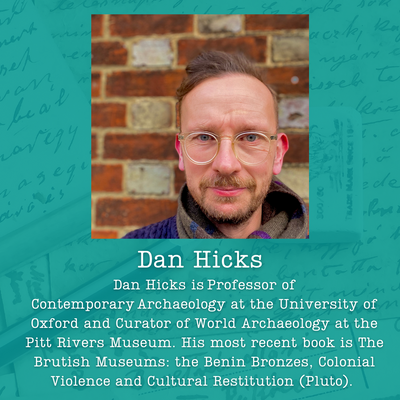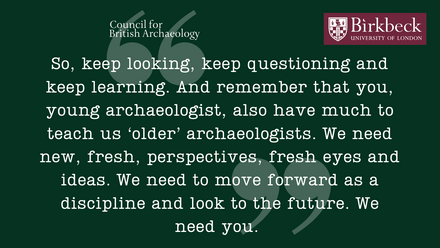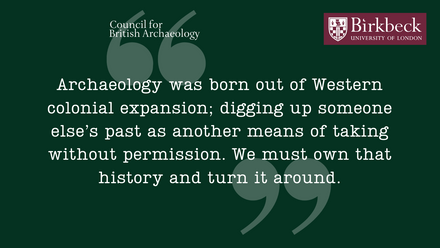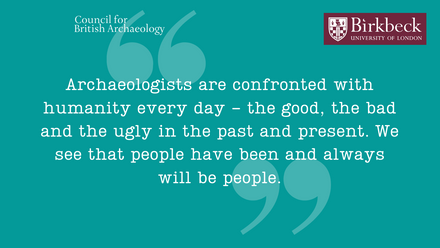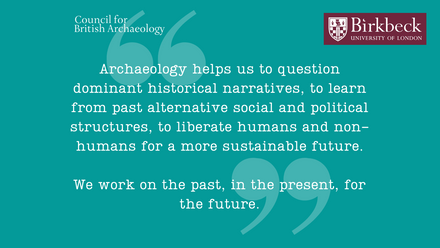Letter to a Young Archaeologist, December 2022
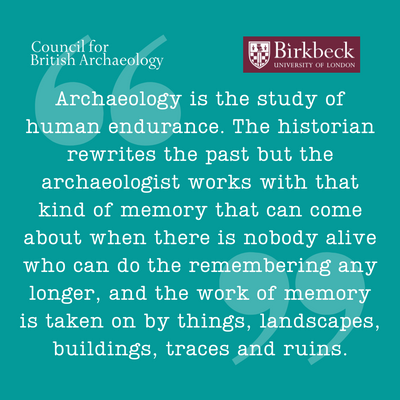
Young Archaeologist,
It’s a strange calling, to get your hands dirty with the detritus of the past, to crouch with a trowel in a muddy trench, to trace the delicate contours of earth works in rainy fields, to run soil through a sieve, to ink letters and numbers onto potsherds and ziplock bags, to perhaps put what some you found on display to the public and to deposit the vast majority of it in box after box in a museum store room, all in the name of excavating ghosts, waking the dead, reading a past that was not written down but just left behind. But as you’ve started down the route of becoming an archaeologist, which as I know better than most is a quite difficult habit to break once you’ve started, let me try to share three thoughts that might perhaps be helpful.
The first thought is a favourite piece of advice that I read in a book by the great radical journalist Christopher Hitchens. Suspect your own motives. As an archaeologist you must examine and reflect on why you chose this vocation. And it’s a good idea periodically to check back in with this question at different phases of your career. The risk is ever-present that the archaeologist is making a claim on the past that is exclusionary, or even hurtful. We know that archaeology has often been put to work for racism, for colonialism, for fascism, for dispossession, for ideologies of cultural supremacy, for the control of the past, for the objectification of others. But we must also remember that it’s still being put to work for these ends today. And during your life time will continue to be in ways we can’t even imagine yet. Excavationis always a form of destruction: you can only dig a site once. When archaeology destroys, make sure it’s for the right reasons.
Second: Care for people more than you do for things. Archaeology is always a kind of return. If we excavate a ditch or a pit, we are re-tracing with our bodies the gestures of the person who dug it before it filled up. Those human re-tracings and returns run through everything we do, but it’s easy to lose sight of the person behind the pot, the building and making and lives that led to the traces that you study. So much in the world is unspoken, unwritten, and yet far from insignificant. Archaeology can see those non-verbal forms of life. This is what the great feminist archaeologist Mary Beaudrymeant when she defined archaeology as ‘ethnography in retrospect’—a kind of anthropology. Which is to stay, archaeology is part of a broader endeavour to understand humanity in all its forms.
Third: Remember that archaeology is always an intervention. Above all, do not mistake it for history. Archaeology isn’t the study of stopped clocks. We don’t encounter an archaeological site as if it were a frozen moment of time like Pompeii after the eruption of Vesuvius. Archaeology is the study of human endurance. The historian rewrites the past but the archaeologist works with that kind of memory that can come about when there is nobody alive who can do the remembering any longer, and the work of memory is taken on by things, landscapes, buildings, traces and ruins. The task of the historian is to describe events, to explain and interpret and compare stuff that happenedand why it matters today. But the archaeologist goes further. The archaeologist intervenes, and in intervening transforms. Archaeology can alter the past by shaping what we remember. It can change the course of history, intervene with the passage of time itself. Use its methods with care, to make and remake a better world with the resources of the past. Because what’s certain is that for all these reasons archaeology can change the world.
Good luck.
Dan Hicks.
